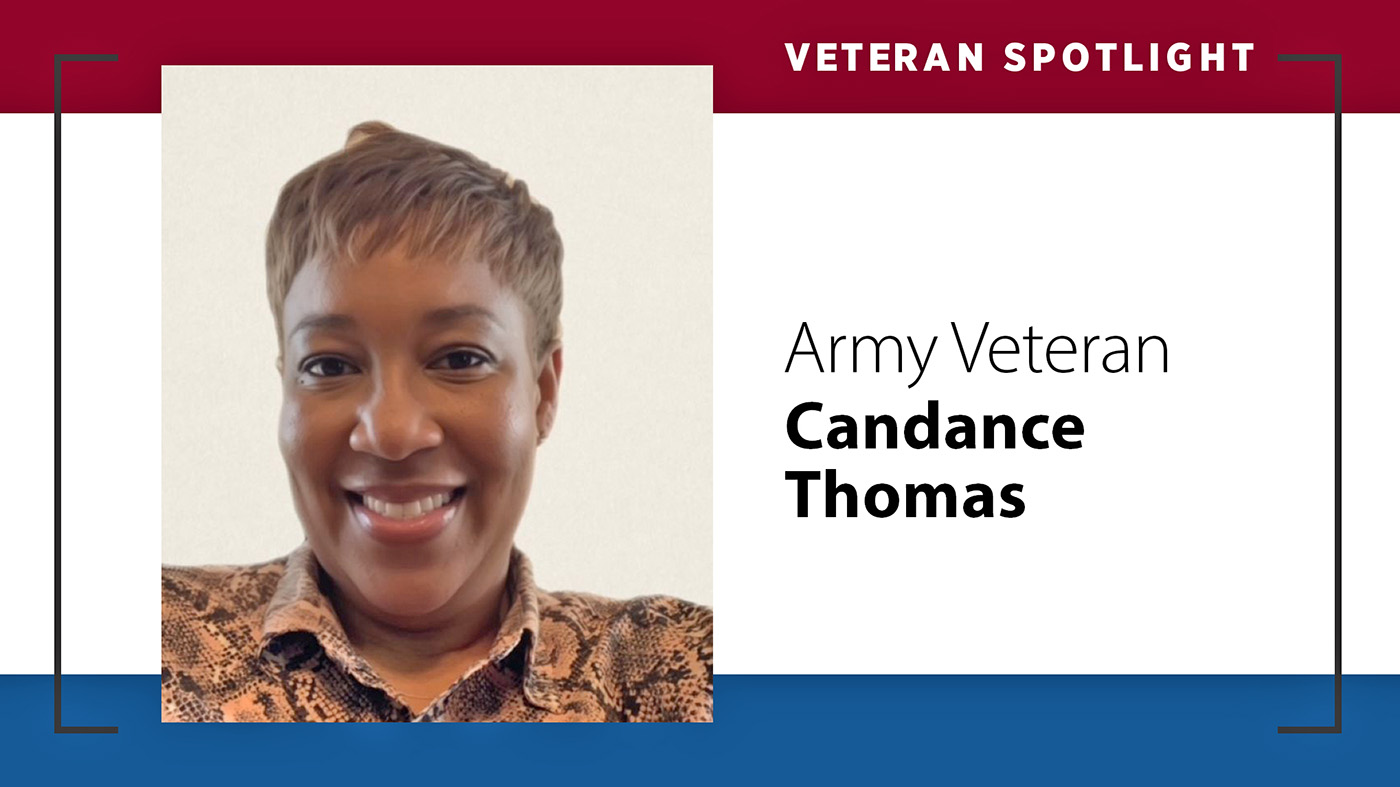Candance Thomas could have been one of those Veterans who slipped through the cracks during the transition to civilian life. But, with a helping hand, Thomas was able to access the VA services and support she needed to avoid becoming homeless.
That hand belonged to Steven Brown, her sergeant major in the Army and now a vocational development specialist in social work services at VA. “She’s got that resiliency about her. But just like many of us who wore the uniform, we focus on other things versus ourselves,” Brown said of Thomas.
How to be a civilian
Thomas joined the Army in 2003 and served 17 years. As a military medic in Iraq, she took care of everything from stomach aches to traumatic injuries. She went out on combat patrols and helped with local humanitarian efforts, including administering childhood vaccines.
Though her time in the Army was “amazing” and gave her a chance to see more of the world, serving in a war zone also left some scars. After being discharged, she struggled with an eating disorder and PTSD, and didn’t have a clear path to a job that would use her military skills.
“I knew how to do my job in the military, but I didn’t know how to be a civilian,” she shared.
She first served with the active guard reserve in Ohio and planned to move to Fort Hood, Texas, to pursue opportunities as a medic. But before she could get there, her mother and grandmother in Memphis were both sick and needed care.
She soon found herself dividing her time between Texas and Tennessee. With two households to support and a frequent 1,200-mile round trip drive, finances kept getting tighter and tighter.
Here to help
That’s when Thomas reached out to Brown, who she reunited with while serving in the active guard reserve. Brown helped her with resume tips and advice on how to use USAJOBS to apply for government positions.
Thomas needed a little help and her former sergeant major was happy to provide it. He connected her with Supportive Services for Veteran Families, and she was able to receive rental assistance and support to stabilize her housing and income.
She enrolled in counseling and, through VA’s Whole Health initiative, has been trying acupuncture and yoga to improve her mental health.
Finding a civilian job proved to be more elusive and would end up taking more than two years. Despite having medical experience in the military, it was hard to find a civilian job that didn’t require certification or licensure.
Thomas completed a master’s degree in informatics from Grand Canyon University and was laser-focused on finding a job serving other Veterans at VA, but couldn’t find a position that matched up with her degree.
After an exhaustive search, she recently landed a position as an intake specialist with the Texas Workforce Commission where she receives and writes up complaints and forwards them to the Department of Housing and Urban Development.
As a bonus, she gets to help other Veterans and become a helping hand herself.
Learn about VA programs
If you are a Veteran who is homeless or at risk for homelessness, call the National Call Center for Homeless Veterans at 877-4AID-VET (877-424-3838).
Visit the VA Homeless Programs website to learn about housing initiatives and other programs for Veterans exiting homelessness.
Check out the Ending Veteran Homelessness podcast to learn more about what VA is doing about Veteran homelessness.
Learn how to get involved with housing homeless Veterans.
For more stories like these, subscribe to the Homeless Programs Office newsletter to receive monthly updates about programs and supportive services for Veterans experiencing or at risk of homelessness.
Topics in this story
Link Disclaimer
This page includes links to other websites outside our control and jurisdiction. VA is not responsible for the privacy practices or the content of non-VA Web sites. We encourage you to review the privacy policy or terms and conditions of those sites to fully understand what information is collected and how it is used.
More Stories
Pacific Islands VA has opened a new urgent care clinic inside the Daniel K. Akaka VA Clinic.
From one battle to the next, including four types of cancers, Eliot Winokur’s resilience remains unshaken.
As severe weather threatened Mississippi, local news warned of a dangerous outbreak of tornadoes. A VA nurse stepped up.





